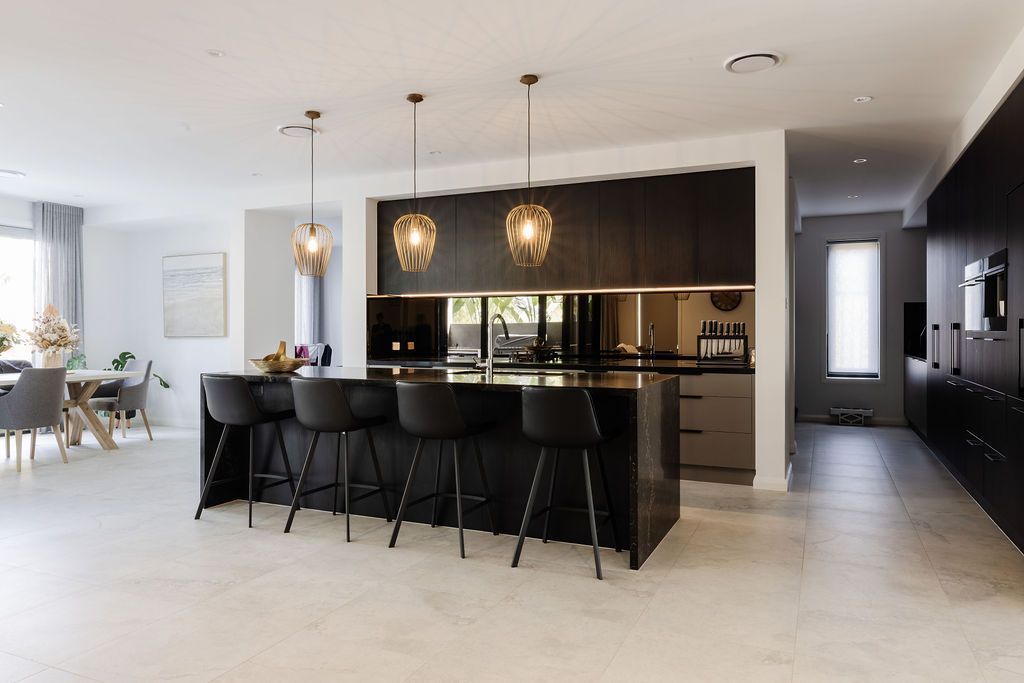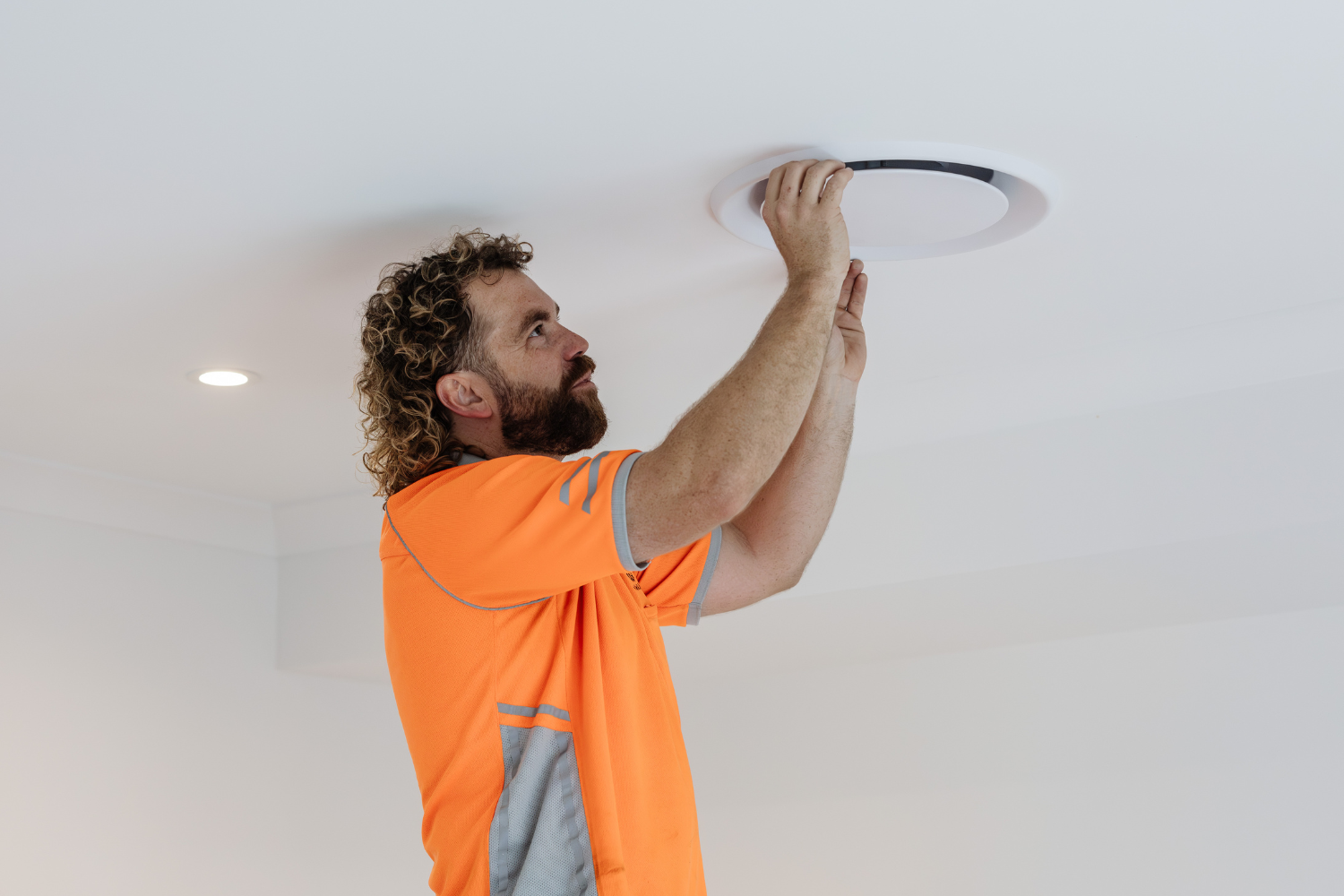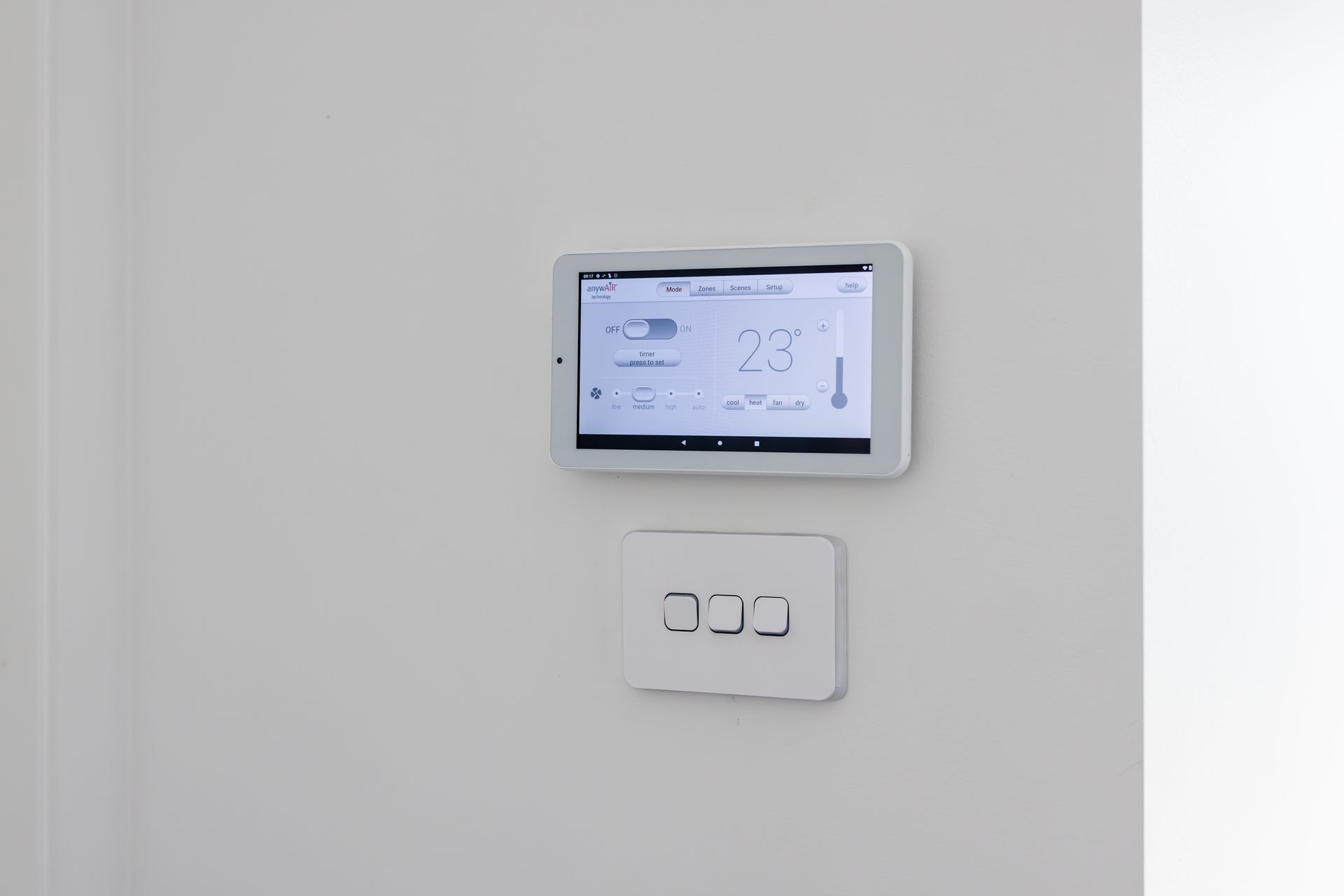Get in touch
555-555-5555
mymail@mailservice.com
What Type of Air Conditioner is Best for My Home?
A Guide to the Best Cooling and Heating Solutions
Choosing the right air conditioner for your home is essential for maintaining comfort throughout the year. With so many options available, it can be challenging to know which one is best suited to your needs. Whether you’re dealing with the hot, humid summers or the cooler winters in Newcastle, selecting the right system can save you money on energy bills while keeping your home comfortable.
Get in touch
1. Split System Air Conditioners: Great for Individual Rooms
A split system air conditioner
is the most common type of unit, consisting of an outdoor compressor and an indoor air handler. These systems are typically installed in individual rooms, providing efficient cooling and heating.
Why it’s a good choice:
- Versatile: Split systems can provide both heating and cooling, making them perfect for Newcastle's mild winters and hot summers.
- Quiet operation: These systems operate quietly, making them ideal for bedrooms, living rooms, and offices.
- Compact and easy to install: Split systems are space-saving and can be installed in virtually any room without the need for extensive renovations.
Best for:
Smaller to medium-sized homes or apartments where you need to cool or heat a single room or zone.
2. Ducted Air Conditioning: Ideal for Whole-Home Comfort
Ducted air conditioning
systems are a great option for larger homes or multi-level properties. This system consists of a central unit connected to a network of ducts that distribute air throughout the entire house. You can control the temperature in each room with a zoning feature, making it more energy-efficient.
Why it’s a good choice:
- Whole-home comfort: Ducted systems provide consistent cooling and heating throughout your entire home, perfect for families and large spaces.
- Energy-efficient: Zoning allows you to control the temperature in different areas of the home, saving energy by only cooling or heating the rooms you’re using.
- Invisibility: The ductwork is hidden in the ceiling or walls, so it doesn’t take up any living space or affect the aesthetics of your home.
Best for:
Larger homes or multi-storey properties where you need to heat or cool several rooms at once.
3. Multi-Split Air Conditioners: Zoned Cooling for Multiple Rooms
If you need to cool or heat multiple rooms but don’t have the space or budget for a ducted system, a multi-split air conditioner might be your ideal solution. This system connects multiple indoor units (similar to split systems) to a single outdoor unit, allowing you to create independent zones in each room.
Why it’s a good choice:
- Zoned cooling: Each room can be individually controlled, so you only need to cool the rooms that are in use, saving energy.
- Flexibility: Multi-split systems are a great option for homes that don’t have the space for ductwork but still need efficient, multi-room cooling.
- Efficient heating and cooling: These systems provide both heating and cooling, making them suitable for year-round use in Newcastle’s variable climate.
Best for:
Homes that require independent temperature control in multiple rooms but lack the space for ducted air conditioning.
When deciding on the best air conditioner for your home, it’s important to consider factors such as the size of your home, your specific cooling and heating needs, your energy efficiency goals, and your budget. Whether you choose a split system, ducted air conditioning, or multi-split air conditioning, make sure you select a system that fits your home and lifestyle.
If you’re unsure which air conditioner is best for your home, it’s always a good idea to consult with a professional HVAC technician. They can assess your home and provide expert advice on the most effective and efficient cooling and heating solution.

March 23, 2025
If your air conditioner isn’t keeping your home as cool as it once did, it could be due to several common issues. Here are some possible reasons and solutions to restore its efficiency. 1. Dirty or Clogged Air Filters Air filters trap dust and debris, but when clogged, they restrict airflow, reducing cooling efficiency. Clean or replace filters every 1-3 months to ensure proper airflow. 2. Low Refrigerant Levels Refrigerant absorbs heat from your home and releases it outside. If your AC is low on refrigerant, it may struggle to cool effectively. A refrigerant leak requires professional repair and recharging. 3. Blocked or Dirty Coils The evaporator and condenser coils play a crucial role in heat exchange. Dirt buildup can insulate the coils, reducing efficiency. Cleaning them annually helps maintain optimal performance. 4. Leaky or Poorly Insulated Ducts Leaky ducts allow cool air to escape before reaching your rooms. Inspect ductwork for leaks and seal any gaps to prevent energy loss. 5. Malfunctioning Thermostat If your thermostat is faulty or incorrectly calibrated, your AC may not be cooling as intended. Check the settings and consider upgrading to a programmable thermostat for better efficiency. 7. Compressor Issues The compressor is the heart of your AC system. If it’s failing, your AC won’t be able to cool properly. A technician can diagnose whether a repair or replacement is needed. 8. Aging AC System If your AC is over 10-15 years old, it may be losing efficiency due to wear and tear. Upgrading to a modern, energy-efficient unit can improve cooling performance and lower energy bills. Regular maintenance can prevent most air conditioner cooling issues. If your system still isn’t cooling effectively after checking these factors, contact a professional HVAC technician for an inspection and repair.

March 13, 2025
Your heating and cooling system is essential for maintaining comfort throughout the year, whether you’re keeping cool in summer or warm in winter. However, running these systems can often lead to higher energy bills. Luckily, there are several simple and effective ways to improve their efficiency, reduce energy waste, and save money in the long run. Here’s how you can boost your system’s performance and lower your energy costs, no matter the season. 1. Keep Your Filters Clean One of the most common reasons for an inefficient heating and cooling system is dirty or clogged filters. Whether you're heating your home in the winter or cooling it in the summer, blocked filters reduce airflow and make your system work harder. This not only wastes energy but can also cause unnecessary wear and tear on your unit. Tip: Clean your filters every 1-3 months, depending on usage. If you have pets or live in a dusty area, you may need to clean them more frequently. 2. Set Your Thermostat to an Optimal Temperature In both summer and winter, adjusting your thermostat can make a significant difference in energy consumption. Setting it to a very low or very high temperature can cause your system to overwork, leading to higher energy bills. Tip: In winter, set your thermostat to 18-20°C and in summer, aim for around 24-25°C. Each degree you lower or raise the temperature can impact your energy usage by about 10%. Use a programmable thermostat to automatically adjust the temperature when you’re not at home or while you’re asleep. 3. Use Ceiling Fans to Improve Airflow Ceiling fans help distribute cool or warm air more evenly throughout your home, allowing your heating or cooling system to work more efficiently. By using a fan in conjunction with your system, you can maintain comfort while reducing the load on your HVAC unit. 4. Seal Gaps and Insulate Your Home Proper insulation and sealing gaps in your home are crucial for energy efficiency, especially when it comes to maintaining indoor temperatures. If your home isn’t sealed properly, hot or cool air will escape, forcing your system to work overtime to maintain the desired temperature. Check for gaps around windows, doors, and ducts, and seal them with weather stripping or caulking. Adding insulation to your attic or walls can also help retain heat in winter and keep cool air inside during summer. 6. Schedule Regular Maintenance Regular maintenance is key to ensuring your heating and cooling systems run efficiently year-round. A professional technician can perform checks, clean essential parts, and address any potential issues before they become major problems. Tip: Schedule a service at least once a year—preferably before the summer or winter season begins. Routine maintenance will help extend the lifespan of your system and improve its efficiency. 7. Upgrade to an Energy-Efficient System Older heating and cooling systems can be inefficient, driving up your energy costs. If your system is over 10-15 years old, it may be time to consider upgrading to a newer, energy-efficient model. Modern units are designed to consume less energy while providing the same level of comfort. While an upgrade may require an initial investment, the savings on your energy bills can make it worthwhile in the long run. 8. Use a Programmable Thermostat for Better Control A programmable thermostat allows you to set specific temperatures for different times of day, so your heating or cooling system isn’t running unnecessarily when you're away from home or sleeping. 9. Clear Obstructions Around Outdoor Units The outdoor unit of your heating or cooling system needs adequate space for proper airflow. If it’s obstructed by leaves, debris, or overgrown plants, the unit will struggle to operate efficiently, increasing energy consumption. By implementing these simple tips, you can improve the efficiency of your heating and cooling system and reduce your energy bills. Regular maintenance, proper temperature settings, and efficient use of your system will ensure that your home stays comfortable all year long—without the high energy costs. Whether you’re heating your home in winter or cooling it in summer, these steps can help you save energy, money, and extend the life of your system.

March 13, 2025
When considering air conditioning options for your home, it's essential to evaluate which system aligns best with your comfort needs, budget, and property layout. Ducted air conditioning offers comprehensive climate control, but it's not the one-size-fits-all solution. Let's delve into the advantages and potential drawbacks to determine if it's the right choice for you.
© 2025
All Rights Reserved | Win Air & Electrical | Privacy Policy
Website by Soqual

